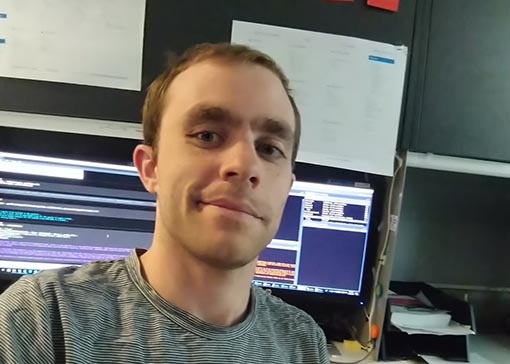
PEARG’s research focuses on how different organisms, particularly invertebrates, adapt to environmental stress. As a research assistant, I do a little bit of everything, but my main focuses are on developing and improving LAMP assays for Wolbachia and insecticide resistance, and assisting with population genetic analyses of species such as the mountain pygmy possum or sundry insects. A research highlight for me has been developing ways of measuring animal dispersal through the geographical networks of close kin uncoverable by modern genotyping methods.
What’s great about science is that it takes curiosity and wonder and builds upon it with hard work, careful thinking, and tenacious problem-solving. The small details I help to uncover as I pipette ethanol or analyse principal components connect and weave into that bigger picture.
The best thing about my job is the group’s focus on the applications of science to agriculture, health and conservation, as well as in building partnerships with the government and the community. It is easy to see and appreciate the connections between the things we study every day in the lab and some of their real-world impacts.
When I came to the university, I had no idea whether pursuing science would work for me. Growing up homeschooled on a farm in the country, I’d never done a science prac in my life. The simple fact of sitting in a lecture was completely foreign to me.
What made the difference was a conversation out of the blue with one of the lab demonstrators, who asked me if I had considered becoming a biologist – they thought I would be good at it. Their unexpected encouragement pushed me to consider science more seriously. In the journey that’s followed, I’ve learned that there’s no one way to be a scientist, and often it’s the things that make you most feel like an outsider that end up being your biggest strengths.
This story is based on an article originally published in the series Humans of BioSciences.